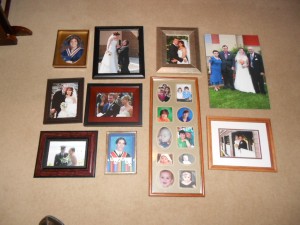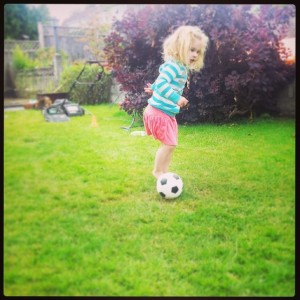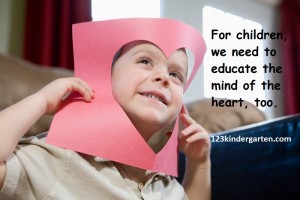Once Upon A Family…
Stories are magical any time of the year, but stories about family members, are extra special to young children. The ones that are most popular are the adventures, or misadventures, of moms and dads when they were kids, and of siblings. Tucked away in my heart, are the countless times my mother used to tell about how far she had to walk to school. My granddad had stories too, especially about the family’s black dog and why he was called Red. (My sister and aunt painted him.)
 Did you know that stories like these are a tremendously valuable part of childhood and contribute to social and emotional development? A friend posted a terrific article called “The Stories That Bind Us” written by Bruce Feiler, in the NY Times. Trying to answer the question about what holds a family together, he realized that “The single most important thing you can do for your family may be the simplest of all: develop a strong family narrative.”
Did you know that stories like these are a tremendously valuable part of childhood and contribute to social and emotional development? A friend posted a terrific article called “The Stories That Bind Us” written by Bruce Feiler, in the NY Times. Trying to answer the question about what holds a family together, he realized that “The single most important thing you can do for your family may be the simplest of all: develop a strong family narrative.”
The stories about hardships, successes, memorable events and ordinary, mundane details create a sort of safety-net for kids. According to psychologist Sara Duke, “The ones who know a lot about their families tend to do better when they face challenges.” The children have better self-esteem, higher resilience and a greater sense of control in their lives because “They know they belong to something bigger than themselves.”
Families may not have the same amount of time to be together with everyone so busy, so we need to take advantage of minutes where we find them. A car ride may be long enough for a story or two, or bath time, or waiting for supper to cook. For a play-of-the-day today, can you share a story with your children about when you were little?


